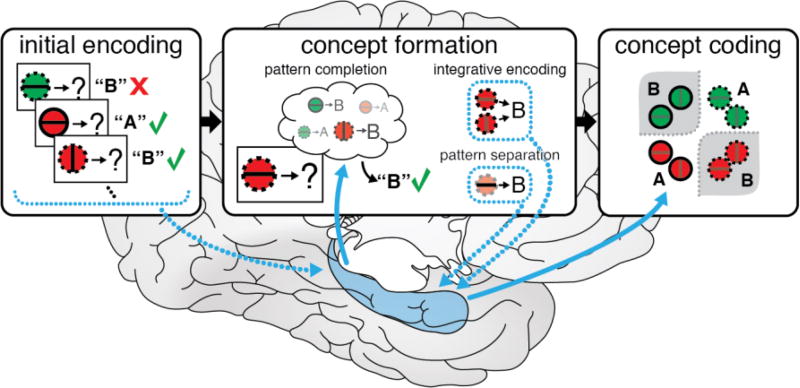Figure 1.
The Episodes-to-Concepts (EpCon) theoretical model of concept formation in the hippocampus. Initially, each new learning experience consisting of stimulus features (e.g., dotted outline, red fill, and vertical center) and concept label (e.g., B) is encoded as a distinct memory (dotted blue lines represent hippocampal encoding). After encoding these initial experiences, memory integration processes soon dominate learning: Pattern completion processes retrieve related memories (solid blue lines depict hippocampal retrieval) that are used to predict a concept label. Feedback then leads to integration across experiences (e.g., red items with dotted outlines are associated with concept B) and/or distinct representation of the current experience through pattern separation. Concept formation continues as learning progresses, with more complex integrated representations that span experiences retrieved through pattern completion and encoded through memory integration. This adaptive process culminates in conceptual coding in which the learned integrated representations capture the structure of the concept. Brain illustration by Margaret Schlichting.

